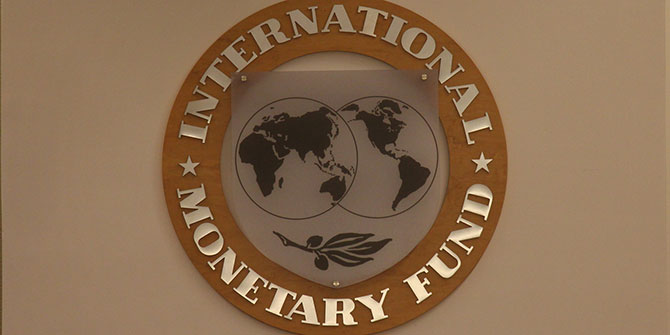Understanding Contemporary Ethiopia is an impressive volume, one which contains a wealth of information on the historical, cultural and religious underpinnings of the landlocked country in the Horn of Africa, says Nick Branson.
This edited volume draws substantially on a 2007 collection compiled under Gérard Prunier’s direction while at the French Centre for Ethiopian Studies. Chapters retained from L’Éthiopie contemporaine have been updated and are complemented by new submissions on religion, Ethiopia’s regional influence, the economy, the Tigray People’s Liberation Front (TPLF), and Meles Zenawi. While the contributing authors are primarily farenji, all are experts in their field.
Understanding Contemporary Ethiopia endeavours to “provide a toolbox useful to all those who seek to discern the lines of evolution of this complex and in many ways hermitic country”. Breaking from the clichéd photographs which illustrated the original French edition, the editors have included a series of eight maps to illustrate the demographic composition and spiritual persuasion of the nine regional states and two chartered cities which constitute the Federal Democratic Republic of Ethiopia (FDRE). Their most striking inclusion is a “Rift-orientated” map of the country (see below).

The book is divided into three sections. The first examines the ethnic, geographical and religious heterogeneity of this vast nation; Africa’s second largest by population. Anthropologists Éloi Fiquet and Dereje Feyissa consider the multitude of identities, hierarchies and narratives in Ethiopia, and illustrate how they affect national unity. The authors emphasise the “historical interactions, forms of exchange and conflicts that have taken place over centuries” and underline how these have become “deeply embedded in social structures and collective memories”. Chapters on the Orthodox Church, Islam, Pentecostalism and Rastafarianism follow.
The middle section deals with the political history of the modern state. Shiferaw Bekele explores the rule of three kings of kings: Tewodros, Yohannes, and Menelik. While his old-fashioned prose, shades of hagiography, and teleological narrative may not appeal to more youthful readers, the author is to be commended for producing an accessible account of an understudied period. How African scholars react to his conclusion that, compared to its neighbours, Ethiopia was disadvantaged by not being colonised, remains to be seen.
Christopher Clapham picks up the account of nation building under the reign of Haile Selassie, a subject on which he has written extensively over the past four decades. His unparalleled understanding of Ethiopian history and geopolitics results in thought-provoking analysis of the period. Prunier’s superbly written account of the 1974 revolution likewise combines domestic factors and regional context. Yet his emphasis on the sui generis nature of the uprising appears dated following the Arab Spring, which is relegated to the footnotes. Equating feudal Ethiopia to tsarist Russia and Bourbon France may strike some readers as Eurocentric. Others may contend that such comparisons understate the influence of Meiji-era Japan on Haile Selassie’s ministers. A more novel approach might have been to tease out commonalities between feudal Ethiopia and the settler states of southern and eastern Africa.
Prunier’s chapter on Eritrea will no doubt prove controversial. For a scholar to dismiss the views of those exercised by this issue as being “based on feelings rather than on any dispassionate attempts at analysing the elements at our disposal” will not be welcome, regardless of its accuracy. This candour aside, he succinctly summarises the historical factors which helped to form an Eritrean “proto-identity”, and the unintended consequences of first Italian and later British occupation. Oddly, Prunier neglects to mention the prominent role which women played in the liberation struggle, and the influence which they continue to exert in society. He concludes that the status quo in Eritrea “keeps contributing, like the now distant Italian colonial past, to the further shaping of a distinct identity.”
On the TPLF, Medhane Tadesse maintains that internal divisions and purges followed by “the shock of an ambiguously contested election in 2005 left the Front with no other choice but regrouping under one strongman advocating a developmental state agenda.” This apparent inevitability is not explained by the author, whose argument is weakened from having not been reframed to consider “the command economy without a commander”, as Prunier labelled post-Meles Ethiopia. Although Medhane Tadesse’s account of the TPLF’s ideological and military development is somewhat repetitious, it is tempered by references to the party’s governance of areas under its control, and concludes with a useful section on the transitional period.
The final section considers contemporary governance. Sarah Vaughan lucidly explains the rationale behind ethnic federalism and decentralisation, before analysing the expansion and contraction of the political space up until 2010. However, her attempt to unpack the complex concepts of “revolutionary democracy” and the “developmental state” appears a little rushed, especially when the latter dovetails with René Lefort’s contribution on the economy. The chapter by Patrick Gilkes is an odd fit for scholarly volume. While his narrative account of the 2005, 2008 and 2010 elections is extremely detailed, it is largely subjective. The author cites only three sources over the course of 17 pages. Those seeking a comprehensive list of the shortcomings of the opposition will nevertheless find it of interest.
Lefort leverages over 200 sources to support his analysis of the evolution, successes and shortcomings of state-led development. His chapter opens with the assertion that “Ethiopia’s economic progress is undeniable, but it is often difficult to give an accurate quantitative measure of it.” Regrettably, Lefort fails to improve the situation by citing statistics from 2010/11, when more recent data – for example on Internet access – might lead to different conclusions. The chapter does, fortuitously, conclude with a short addendum from May 2014, but the new Growth and Transformation Plan (GTP II) remains out of scope. Perrine Duroyaume complements the above with a thoroughly riveting and systematically critical account of Addis Ababa’s growth and urban renewal. Prunier rounds off the volume with what he terms “a kind of philosophical musing” on Meles Zenawi.
Understanding Contemporary Ethiopia contains a wealth of information on the historical, cultural and religious underpinnings of the modern Habesha state. The editors have assembled an impressive series of contributions, and the publishers must be commended on an incredibly detailed index, which runs to 40 pages and includes the dates of major historical events. Although it is regrettably dated in parts, students of anthropology, history, sociology and politics will all find something of interest in this volume. Likewise, diplomats, aid workers and investors might find greater success in navigating the corridors of Addis Ababa – and differentiating between wax and gold – if they read a chapter or two.
Understanding Contemporary Ethiopia: Monarchy, Revolution and the Legacy of Meles Zenawi. Edited by Gérard Prunier and Éloi Ficquet. Hurst
Nick Branson is Senior Researcher at Africa Research Institute. Follow him on Twitter @NHBranson.
The views expressed in this post are those of the author and in no way reflect those of the Africa at LSE blog or the London School of Economics and Political Science.







What an inspirational book review is.
Please direct me on how would I have the book and how could that be on my hand via soft/hard copies very soon.
I live in Ethiopia, Tigray,Adwa
Meles Zenawi, the late, unlamented unremarkable contrarian. He flunked out of University, he went into the country side and hid in a relatives house every time there was a fight with the Derg. His exasperated friends in the Marxist Leninist League of Tigray (MLLT later TPLF) had him take care of writing their letters home, the minutes of meetings and general clerking duties, and medical orderly for the leadership, knowing he was no use in fighting. That’s the 25 cents non glamorized version of his history. He was derivative, insulted his way out of any discussion that presented even a little challenge to his world view, as is plentifully clear from his interactions with the parliament he intimidated and browbeat though he was the one who handpicked them (maybe because he knew they would kowtow). He was corrupt, stole billions from the national treasure and kickbacks, and used his wife as his personal banker. She bought Brownstones in New York and Apartment Buildings and Gas stations in Washington DC.